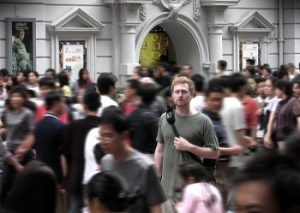Throughout my high school senior year, my teachers kept iterating the phrase “University is going to be difficult, so start preparing for all the stress”. College students also describe their experience as “staying up late at night to either finish a paper or study for a midterm”. Currently, I have been studying at UBC for the past two months, and I’m not gonna lie, I have spent a couple late nights writing up a paper or studying for an upcoming exam. At this point, all I can ask is: why is the academia so stressful?
There are a few stigmas about why university life is so stressful. Some people say that universities are irksome because they are trying to separate the students that procrastinate and fool around, and those that study hard and put all their effort into studying. On the other hand,  others say that university is nerve-wracking because it is preparing you for the also aggravating and time consuming life of having a full-time job. Basically, university is seen as a filter for bad and good apples or a boot-camp that is supposed to toughen you up for future careers.
others say that university is nerve-wracking because it is preparing you for the also aggravating and time consuming life of having a full-time job. Basically, university is seen as a filter for bad and good apples or a boot-camp that is supposed to toughen you up for future careers.
Recently, I have learned that the university is made to be a struggle sometimes for a good reason. Dr. Christopher Erickson mentioned during one of his political science lecture that exams are built to test your method of preparing for a situation. The tests that every student sweats over is made to provide feedback on your style of getting ready for an exam, so you can reassess whether you are taking the right approach to the dilemma or not. Dr. Moberley Luger also said, “Things may seem difficult, but it’s going to be okay.” in response to her students worrying about her upcoming exam. Furthermore, Dr. Kerry Greer assured her students after they received their exam results that, “Your grades are only going to go up from here.”. In essence, we’re being taught to slowly solve our conditions and dilemmas, not being filtered or hardened.
Furthermore, Dr. Kerry Greer assured her students after they received their exam results that, “Your grades are only going to go up from here.”. In essence, we’re being taught to slowly solve our conditions and dilemmas, not being filtered or hardened.
Despite the obstacles UBC has set up for me, I believe that I am actually learning something new everyday. My professors are teaching me more than their field of expertise, but life lessons and ways of evaluating predicaments, which I would argue are just as important as my studies. Am I enrolled in university just for the education from my lectures discussions? I would say that I am learning so much more from the different people I have met here.

